Meteor, like so many other frameworks, comes with a community tied to it. Quite often it is the case that new frameworks are struggling community wise, but because Meteor has made such a huge impact on many developers lives, the community is flourishing on daily basis. I’ve never had any trouble finding answers and solutions for the questions that I’ve had related to Meteor development.
The IRC channel is usually populated with 200+ people, and there’s someone around in both US and EU timezones. That aside, the Meetups in real-life are also a big thing for Meteor, in fact — they highly cherish their public meetups, because that’s where most of the magic happens. We will discuss the meetups page in the article.
Explore: 10 Free Books for Learning JavaScript
Other aspect of Meteor community to like is that a lot of the stuff that goes on daily/weekly/monthly within the core community of Meteor — is always video documented and shared on sites such as YouTube. It really does add a nice touch, that extra comfort in knowing that you’re a part of something bigger, rather than just smart people behind their screens.
1. Meteor forums (Official)
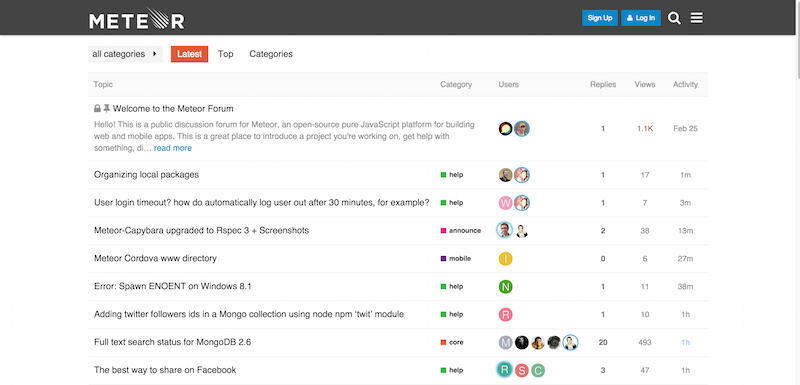
It definitely was a long time coming to have an official Meteor forum launched, but late February this year — it was finally decided that Meteor would host its own Discourse-type community. As an official resource, you’ll get everything you’d expect — top class support, insight and replies from the core team.
2. YouTube
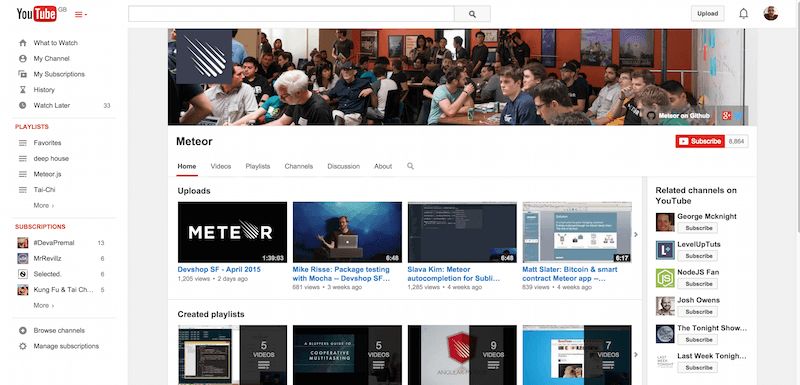
I think as far as official resources go, this is one of the pots of gold that Meteor has in its catalog. Their YouTube channel is full of official team videos from hacathons, official keynotes, public talks, especially monthly meetups. You’ll learn immensely amount the framework itself, and also what can be done with it. It’s how I started my own journey, through the YouTube videos.
And just to expand on this, there are plenty of other non-official YouTube resources (developers) that share their own creations through video format, completely at no cost.
3. Crater
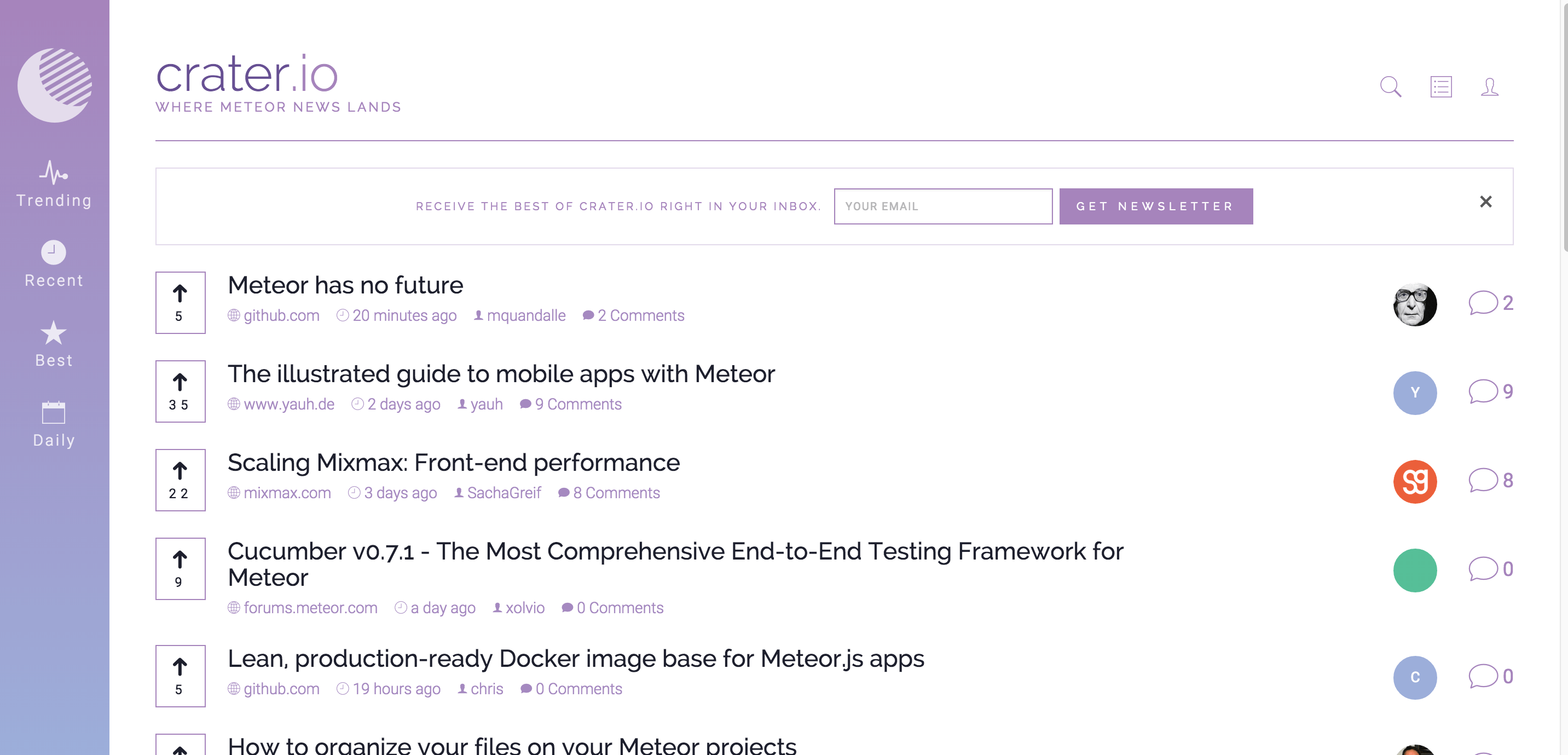
Crater is the Reddit alternative to Meteor content that solely focuses on content around the Meteor framework. It’s using the Telescope community app — which is actually built with Meteor itself, so it’s a very tightly organized community. Other than that, on Crater you’ll find articles/news/tutorials/resources/etc about Meteor as it happens, friendly community and lots of stuff to explore.
I’m a member on this community myself, it just so happened that I totally didn’t include it in the first draft of this post, and as one of the leading minds behind Meteor — Sacha Greif pointed this out for me, thanks to him!
4. Google Group

The Google group is a fairly active resource for Meteor developers, but ever since the official forums was launched — it has slowly died down. However, because of how popular it used to be before that, it is still worth having it in your list of resources for learning, a lot of still viable questions and tips have been shared in this community.
5. Meetup Groups
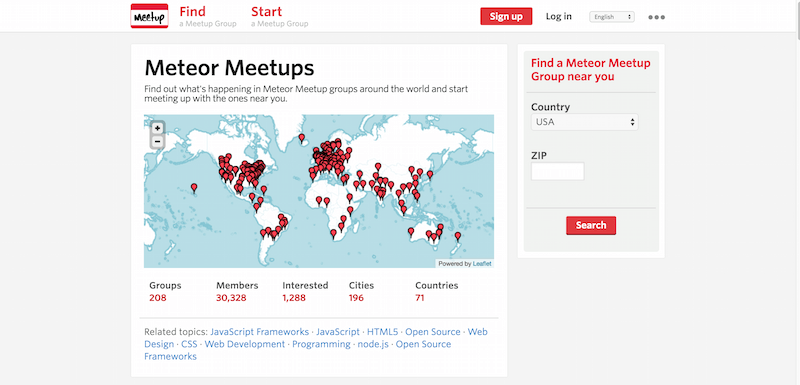
Like I said in the first few paragraphs, Meteor is all about the community aspect, and their Meetup groups are true testament to that. If you jump on the site now and check your country/region of where you live, there’s a high possibility that a local meetup is happening at some point during the week or month. Attend these meetups, they give you an invaluable sense of community that is so crucial to new developers.
6. Stack Overflow
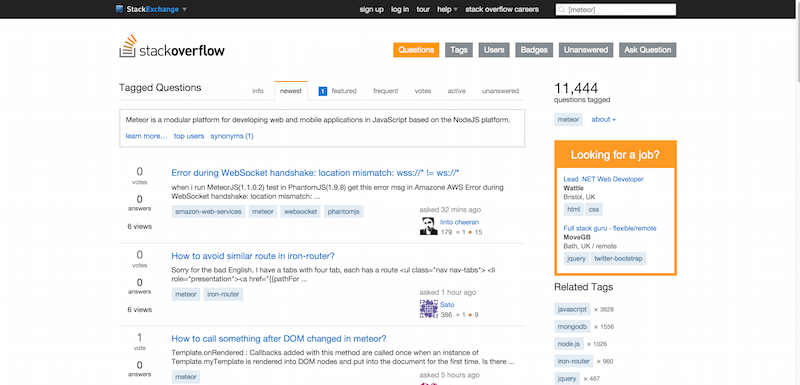
Stack Overflow is of course the elite resource for anyone who is truly passionate and determined to get his developer career under way. Much like we’ve written in our Swift community resource — Stack Overflow is all about being true and honest to yourself and the people who use this community. Do your research, do your testing, then ask the question.
7. Reddit
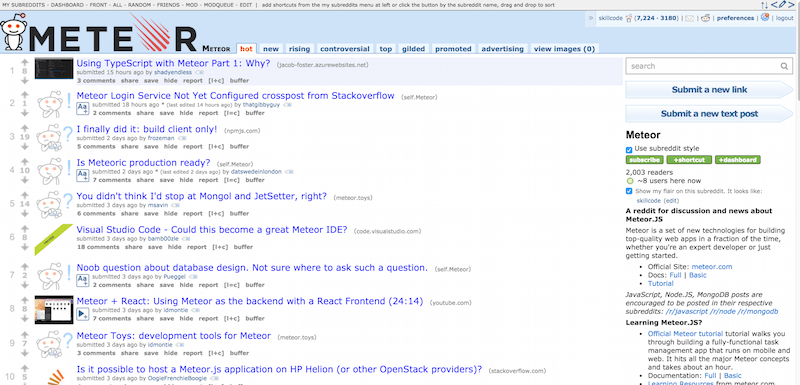
A nice and relaxed community that will both help you with your troubles, and also steer you in the right direction of what the next action steps should be. It’s currently a 2,000 strong community, and if you ever find yourself being completely stuck, perhaps the nice people at Reddit can help.
8. Hackpad
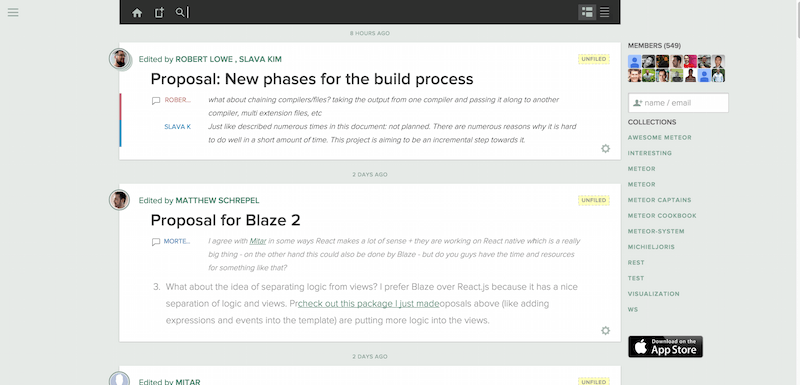
If you feel confident enough to have mastered the Meteor framework as it is, and feel that there is something missing or something that you’d like to see being added to the framework — Hackpad is the place to go. It’s a community of suggestions that people can vote on, talk about, and dive deeper into.
9. Quora
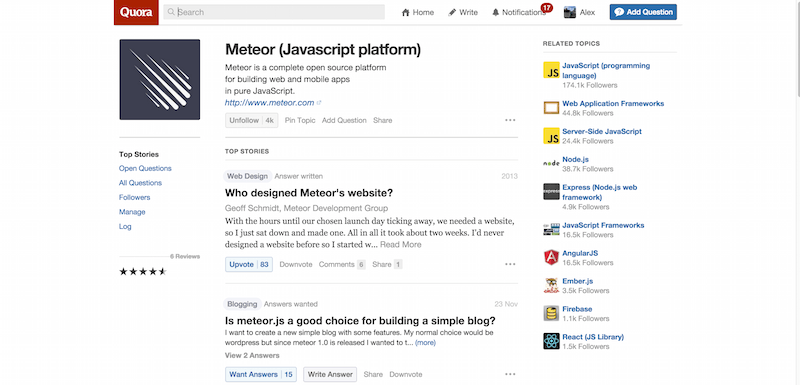
Personally, I wouldn’t say that this is the place where the most elite and resourceful developers hang out at, but as a questions and answers community — Quora does have is place in the list of resources. If you find yourself struggling with something unusual, Quora usually has people who can give you a clear answer.
10. Google Plus
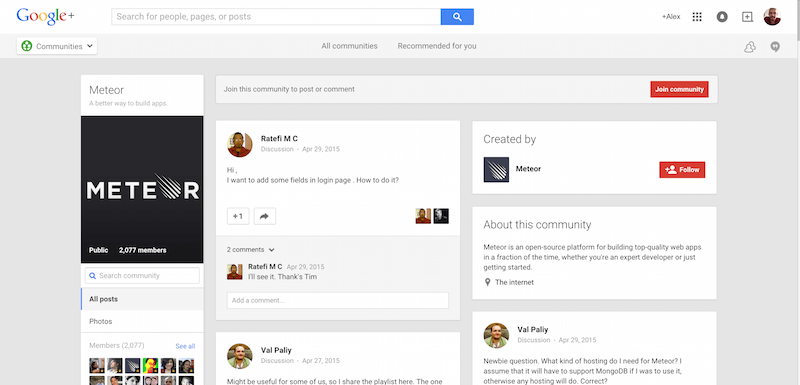
I’ve to mimic what I’ve said above, Google Plus for Meteor isn’t particularly fuming with new developers, but the questions usually are on point and are technical, and more often than not there is someone to give you a clear answer. At the end of the day, people do want to help.
11. Made with Meteor
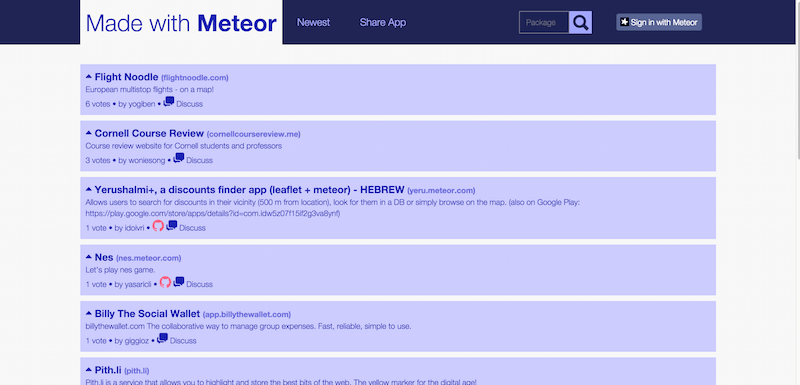
The last learning resource on our list isn’t particularly a direct learning resource, it’s actually a roundup of apps that are made by Meteor developers. Now, the great thing about this is that you get to see what is possible to be created with this amazing framework, but you also get access to the URL’s of these sites, and chances are that the developer has left some sort of contact details for you. In that case, reach out to them and start collaborating on projects to truly bring your Meteor knowledge to the next level.
Learning Communities for Meteor Developers
It was fun putting this resource together since it reminded of my own initial starting days with this framework, the communities really are warm and knowledgeable, because everyone understands just how versatile Meteor is, and just how much it can offer to the World within a couple of lines of code. Let me know if I have missed some of your own favorite learning resources, hopefully I haven’t!


I’m not sure how you write a post about Meteor communities and feature Made With Meteor, but forget to include Crater… (https://crater.io/)
Hey Sacha,
good to have you on site, thanks for dropping by. You’re right, I’m actually a member at Crater as well, and I think it’s the laziness that got over me yesterday that I didn’t add Crater to the list. Will make sure it’s there by the end of the day.